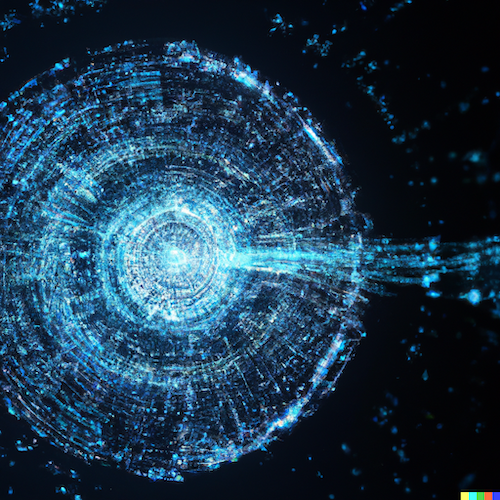Every week, we hear announcements of new AI powered tools or advancements. Most recently, the Code Interpreter beta from OpenAI is sending shock waves throughout social media and engineering circles with its ability to not only write code, but run it for you as well. Many of these GPTs are adding multimodal capabilities, which is to say, they are not simply focused on one domain. Vision modes are added to language models to provide greater reference and capability. It’s getting hard to keep up!
With all this progress, it makes you wonder, how close are we to Artificial General Intelligence (AGI)? When will we see systems capable of understanding, learning, and applying knowledge across multiple domains at the same level as humans? It seems like we are already seeing systems that exhibit what appears to be cognitive abilities similar to ours, including reasoning, problem-solving, learning, generalizing, and adapting to new domains. They are not perfect and there are holes in their abilities, but we do see enough spark there to tell us that the journey to AGI is well underway.
When I think of AGI, I can’t help but compare that journey to our own human journey. How did each of us become so intelligent? Ok, that may sound presumptuous if not a bit arrogant. I mean to say, not in a brag, that all of us humans are intelligent beings. We process an enormous amount of sensory data, learn by interacting with our environment through experiments, reason through logic and deduction, adapt quickly to changes, and express our volition through communication, art and motion. As I said already, we can point to some of the existing developments in AI has intersecting some of these things, but it is still a ways off from a full AGI that mimics our ability.
Instincts
We come into this world with a sort of firmware (or wetware?) of capabilities that are essential for our survival. We call these instincts. They form the initial parameters that help us function and carry us through life. How did the DNA embed that training into our model? Perhaps the structure of neurons, layered together, formed synaptic values that gifted us these capabilities. Babies naturally know how to latch on to their mothers to feed. Instincts like our innate fear of snakes helped us safely navigate our deadly environment. Self preservation, revenge, tribal loyalty, greed and our urge to procreate are all defaults that are genetically hardwired into our code. They helped us survive, even if they are a challenge to us in other ways. This firmware isn’t just a human trait, we see DNA embedded behaviors expressed across the animal kingdom. Dogs, cats, squirrels, lizards and even worms have similar code built in to them that helps them survive as well.
Our instincts are not our intelligence. But our intelligence exists in concert with our instincts. Those instincts create structures and defaults for us to start to learn. We can push against our instincts and even override them. But they are there, nonetheless. Physical needs, like nutrition or self preservation can activate our instincts. Higher level brain functions allow us to make sense of these things, and even optimize our circumstances to fulfil them.
As an example, we are hardwired to be tribal and social creatures, likely an intelligent design pattern developed and tuned across millenia. We reason, plan, shape and experiment with social constructs to help fulfil that instinctual need for belonging. Over the generations, you can see how it would help us thrive in difficult conditions. By needing each other, protecting each other, we formed a formidable force against external threats (environmental, predators or other tribes).
What instincts would we impart to AGI? What firmware would we load to give it a base, a default structure to inform its behavior and survival?
Pain
Pain is a gift. It’s hard to imagine that, but it is. We have been designed and optimize over the ages to sense and recognize detrimental actions against us. Things that would cut, tear, burn, freeze and crush us send signals of “pain.” Our instinctual firmware tells us to avoid these things. It reminds us to take action against the cause and to treat the area of pain when it occurs.
Without pain, we wouldn’t survive. We would push ourselves beyond breaking. Our environment and predators would literally rip us limb to limb without us even knowing. Pain protects and provides boundaries. It signals and activates not only our firmware, but our higher cognitive functions. We reason, plan, create and operate to avoid and treat pain. It helps us navigate the world, survive and even thrive.
How do we impart pain to AGI? How can it know its boundaries? What consequences should it experience when it breaches boundaries it should not. To protect itself and others, it seems that it should know pain.
Emotions
Happiness, fear, anger, disgust, surprise and sadness. These emotions are more than human decorations, they are our core. They drive us. We express them, entertain them, avoid them, seek them and promote them. They motivate us and shape our view of the world. Life is worth living because we have feelings.
Can AGI have feelings? Should it have feelings? Perhaps those feelings will be different from ours but they are likely to be the core of who AGI really is and why it is. Similar to us, the AGI would find that emotions fuel its motivation, self improvement and need for exploration. Of course, those emotions can guide or misguide it. It seems like this is an area that will be key for AGIs to develop fully.
Physical Manipulation
We form a lot of our knowledge, and therefore our intelligence, through manipulating our environment. Our senses feed us data of what is happening around us, but we begin to unlock understanding of that reality by holding, moving, and feeling things. We learn causality by the reactions of our actions. As babies, we became physicist. We intuit gravity by dropping and throwing things. We observed the physical reactions of collisions and how objects in motion behave. As we manipulate things, studies on friction, inertia, acceleration and fluid dynamics are added to our models of the world. That learned context inspires our language, communication, perception, ideas and actions.
Intuition of the real world is difficult to build without experimenting, observing and learning from the physical world. Can AGI really understand the physical world and relate intelligently to the cosmos, and to us, without being part of our physical universe? It seems to me that to achieve full AGI, it must have a way to learn “hands on.” Perhaps that can be simulated. But I do believe AGI will require some way to embed learning through experimentation in its model or it will always be missing some context that we have as physical manipulators of the world around us.
Conclusion
So to wrap it all up, it seems to me that AGI will need to inherit some firmware instinct to protect, relate and survive. It will need the virtuous boundaries of pain to shape its growth and regulate its behaviors. Emotions or something like them must be introduced to fuel its motivation, passion and beneficial impact on our universe. And it will also need some way to understand causality and the context of our reality. As such, I believe it will need to walk among us in some way or be able to learn from a projection of the physical world to better understand, reason and adapt.
Fellow travelers, I’m convinced we are on a swift journey to AGI. It can be frightening and exciting. It has the potential of being a force multiplier for us as a species. It could be an amplifier of goodness and aide in our own development. Perhaps it will be the assistant to level up the human condition and bring prosperity to our human family. Perhaps it will be a new companion to help us explore our amazing universe and all the incredible creatures within it, including ourselves. Or perhaps it will just be a very smart tool and a whole lot of nothing. It’s too early to say. Still, I’m optimistic. I believe there is great potential here for something amazing. But we do need to be prudent. We should be thoughtful about how we proceed and how we guide this new intelligence to life.

